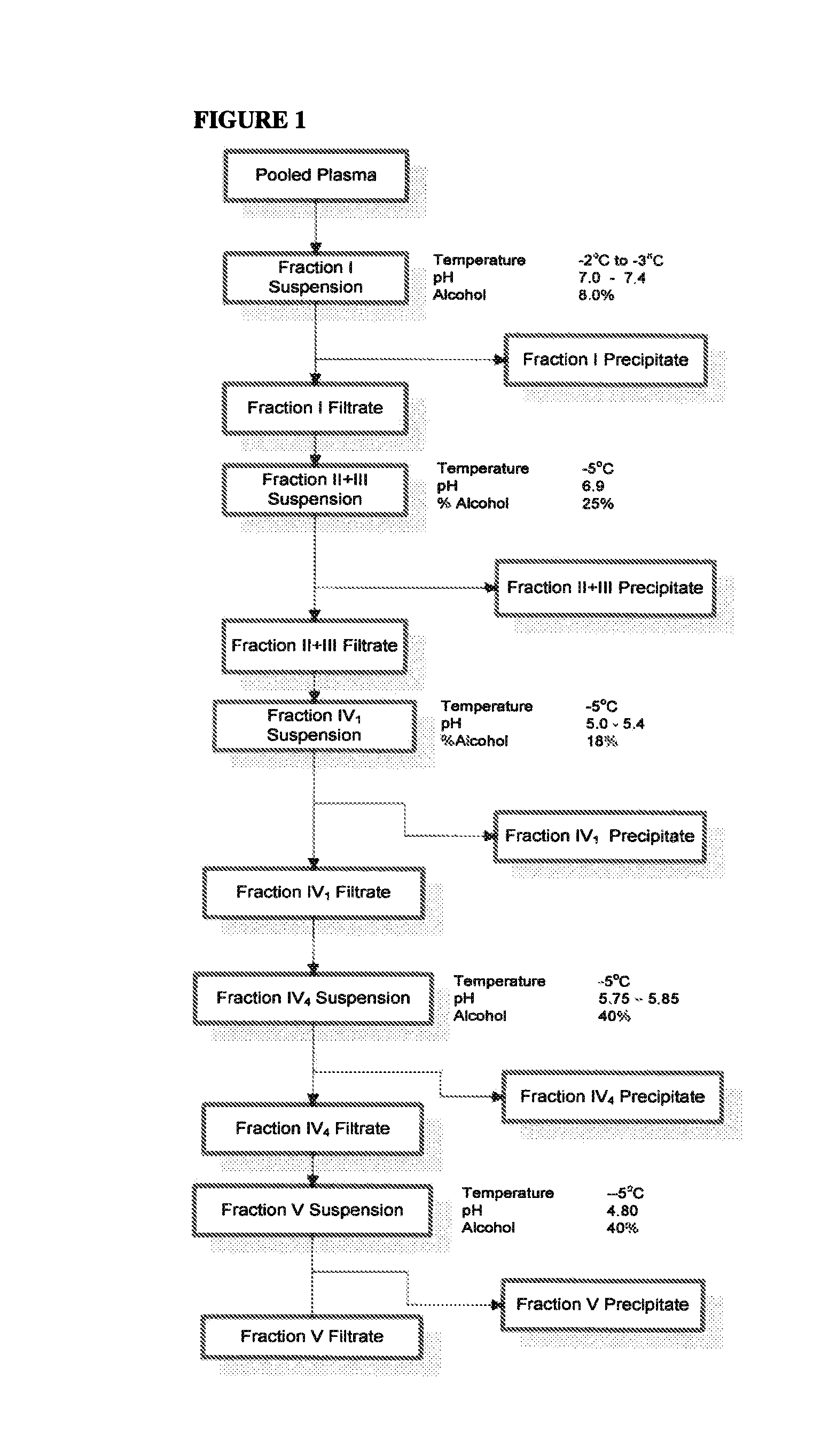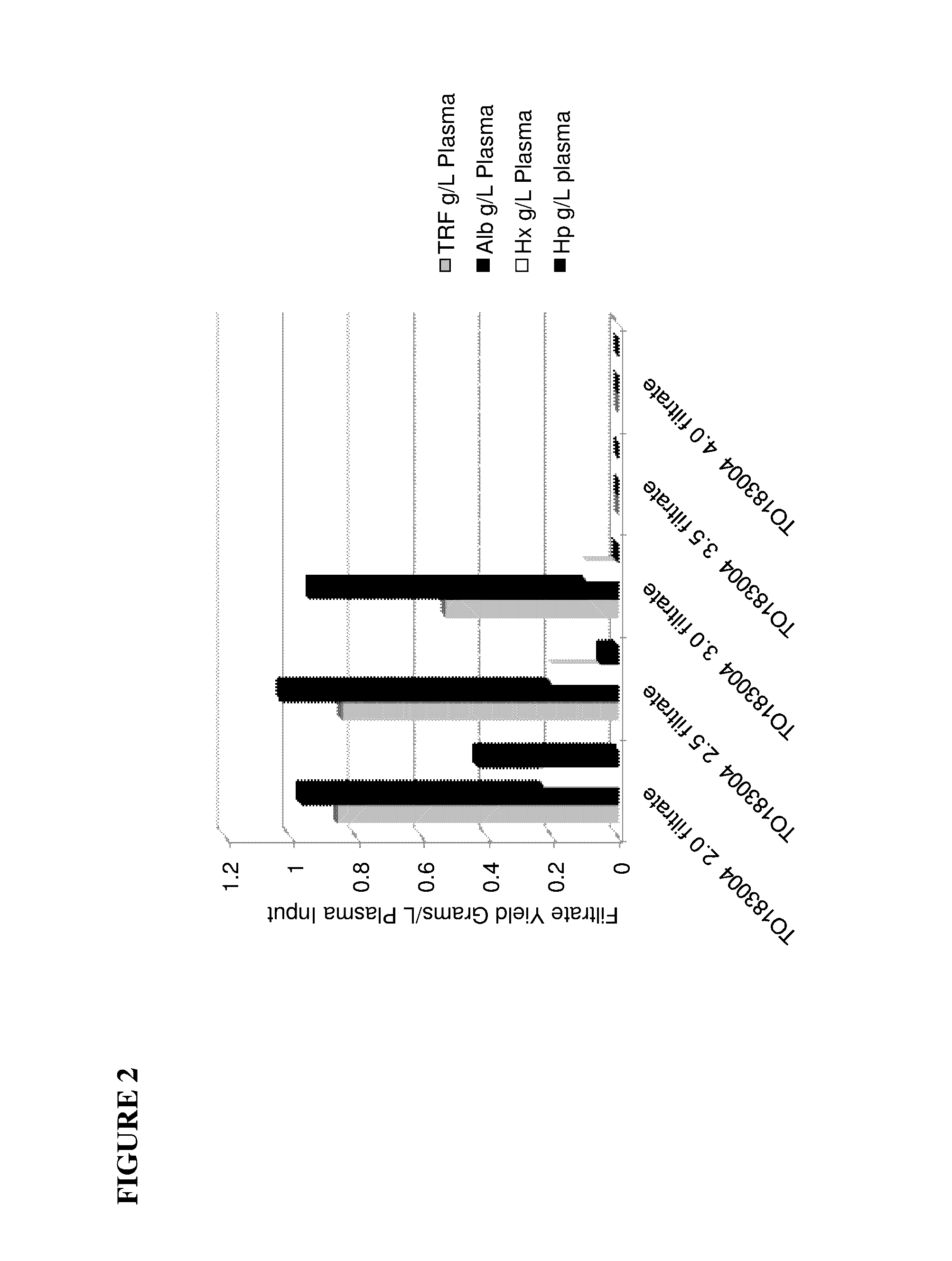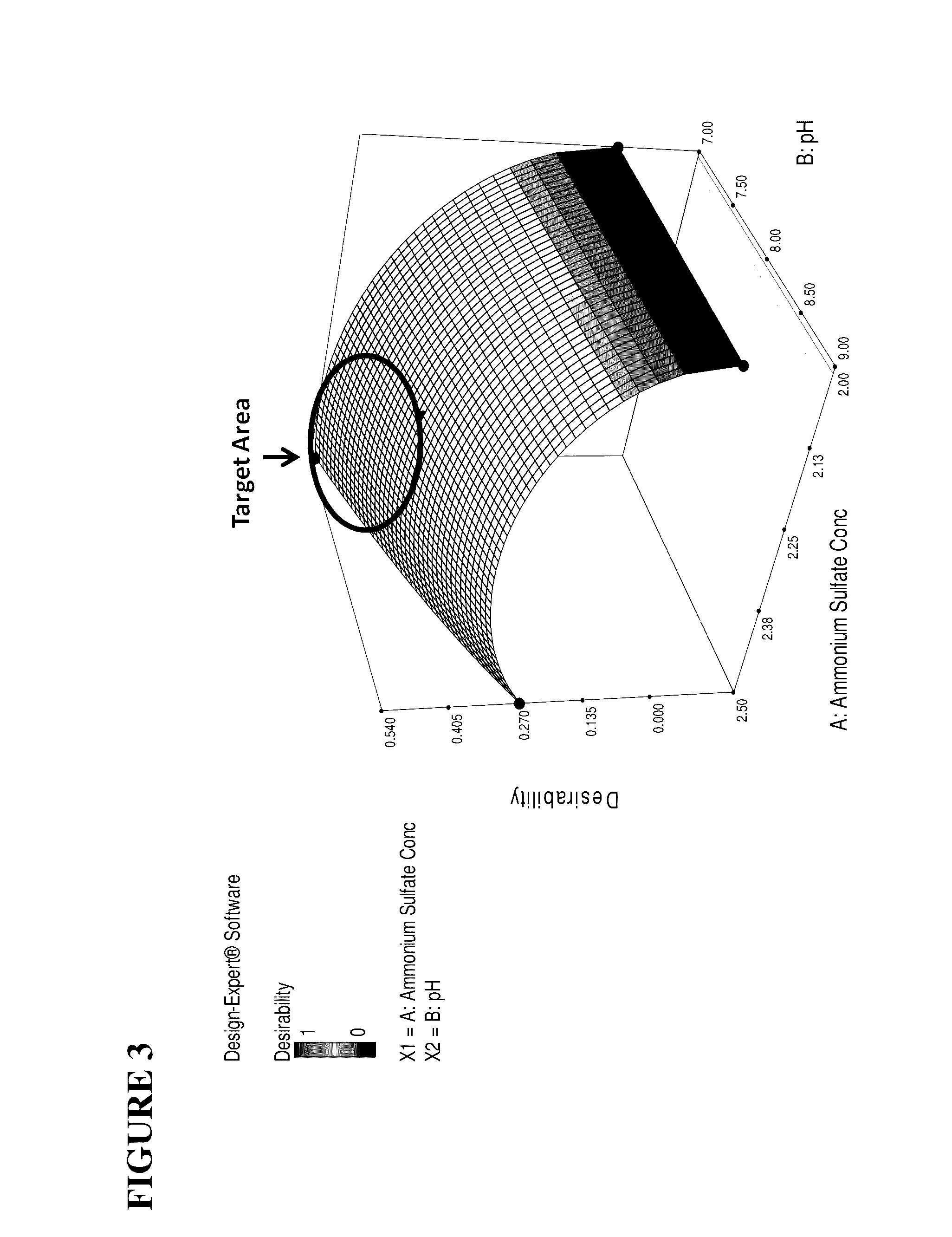Method of purifying proteins
a technology of purification method and protein, applied in the field of purification protein, can solve the problems of ros, high toxicity of free heme, and overflowing buffering capacity of haptoglobin, and achieve the effects of reducing the number of reactive oxygen species (ros) and destroying lipid membranes, proteins and nucleic acids
- Summary
- Abstract
- Description
- Claims
- Application Information
AI Technical Summary
Problems solved by technology
Method used
Image
Examples
example 1
[0112]Starting Material: Cohn Fraction IV4 Precipitate was used as starting material for the purification of haptoglobin, hemopexin, and transferrin (see FIG. 1).
[0113]Precipitate Extraction: Extraction of the precipitate was performed by the introduction of 20 grams of Extraction Buffer per gram of Fraction IV4 Precipitate (20× Extraction Ratio). The buffer and the precipitate were mixed for a minimum of 1 hour. Extraction Buffer consisted of 50 mM Tris adjusted to a pH of 7.0 with Concentrated HCl. The Extraction Buffer was prepared at a temperature of 20-25° C. The precipitate extraction was also performed at a temperature of 20-25° C. The pH during the extraction was maintained between 7.0 to 8.0 (preferably 7.0) for the duration of the 1 hour extraction time.
[0114]Ammonium Sulfate Precipitation: Solid ammonium sulfate was added to the Fraction IV4 extract in order to achieve a final concentration of 2.0 to 2.5M (preferably 2.4M). Under agitation, the ammonium sulfate was slowly...
PUM
| Property | Measurement | Unit |
|---|---|---|
| pH | aaaaa | aaaaa |
| concentration | aaaaa | aaaaa |
| temperatures | aaaaa | aaaaa |
Abstract
Description
Claims
Application Information
 Login to View More
Login to View More - R&D
- Intellectual Property
- Life Sciences
- Materials
- Tech Scout
- Unparalleled Data Quality
- Higher Quality Content
- 60% Fewer Hallucinations
Browse by: Latest US Patents, China's latest patents, Technical Efficacy Thesaurus, Application Domain, Technology Topic, Popular Technical Reports.
© 2025 PatSnap. All rights reserved.Legal|Privacy policy|Modern Slavery Act Transparency Statement|Sitemap|About US| Contact US: help@patsnap.com



